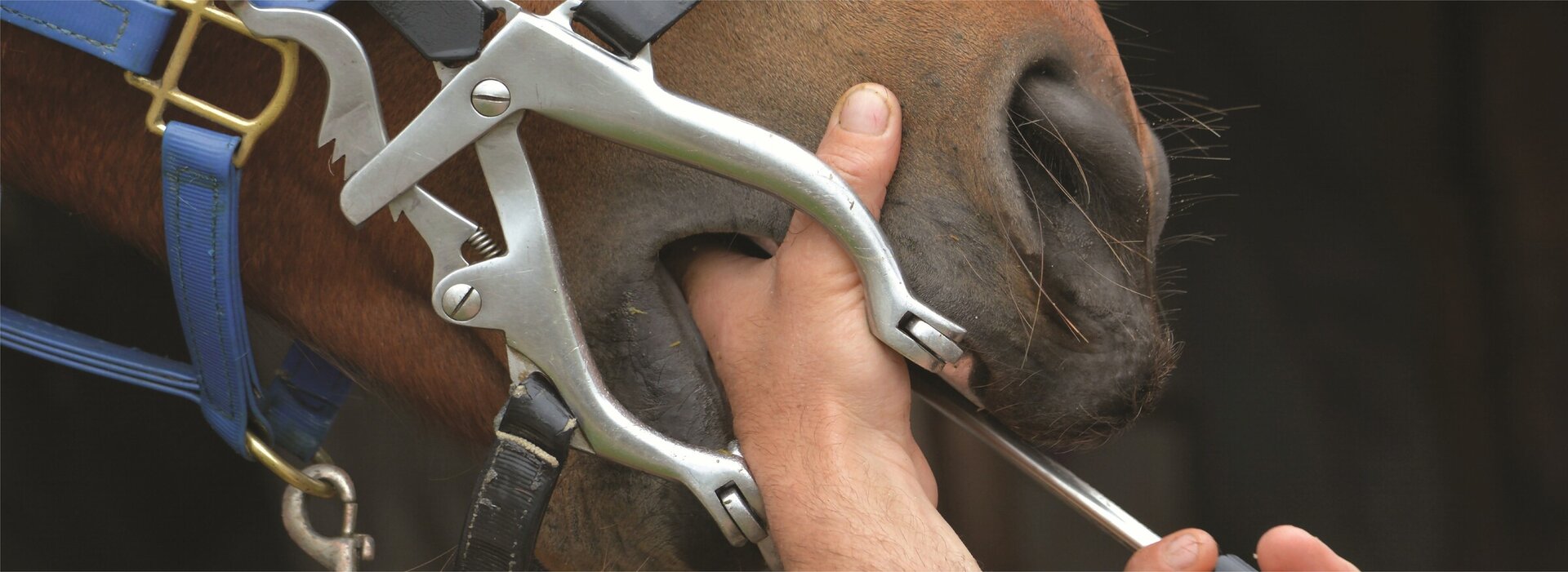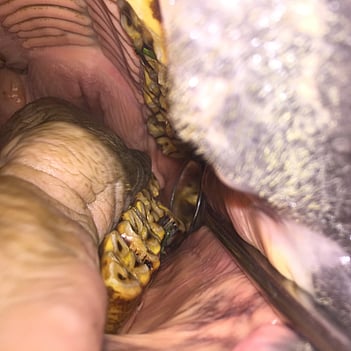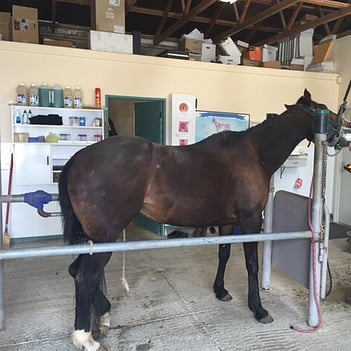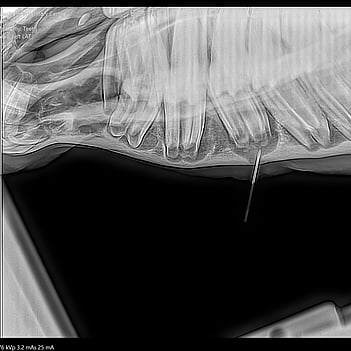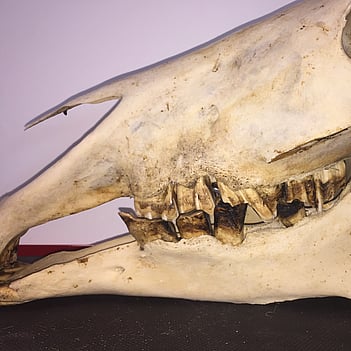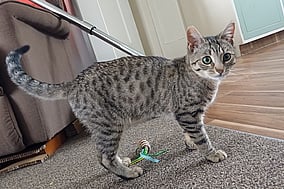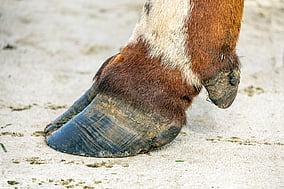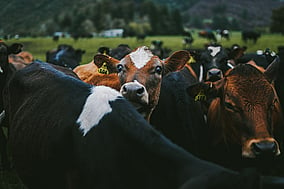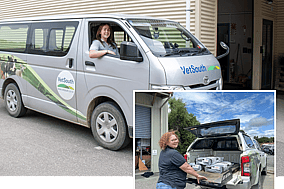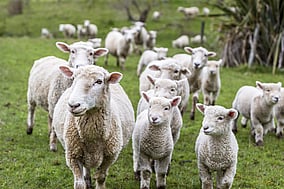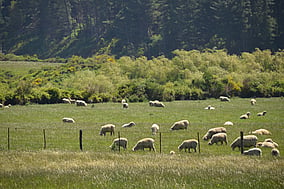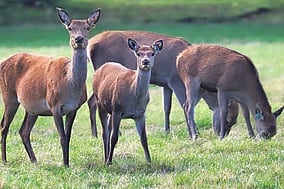At VetSouth Equine, we use a full mouth oral speculum that allows the mouth to be safely opened. After the mouth has been thoroughly rinsed out with an antiseptic solution, the use of a light and mirrors enables full visualisation of the mouth.
The safe use of tranquilisers allows a thorough dental examination to be performed followed by effective treatment.The use of motorised power equipment ('Powerfloat') allows sharp enamel points, overgrowths and malocclusions of teeth to be quickly corrected. As a horse's teeth are continually growing or erupting, they will naturally develop sharp enamel points that can cut into the cheeks or tongue if left untreated. We recommend that your horse’s mouth and teeth are examined every 6 - 12 months depending on their age, dental history and oral conformation. This is often done at the same time as their annual vaccinations or at the horse’s annual health check.
Routine dental treatment and some minor surgical procedures (e.g. removal of wolf teeth) can be performed either at our client's premises or alternatively bought into the clinic. Horse's that require more advanced dental care (e.g. extraction of molar teeth or management of dental related paranasal sinus infections) are generally admitted to the clinic.
EQUINE DENTAL CARE PLAN
Keep your horse happy and healthy.
We recognise all of our dedicated clients that are committed to giving their horse the best care possible. Sometimes that entails performing dental work and oral health treatment more frequently than just once a year. Horses that receive regular dental work (at least every 12 months) will receive 15% discount on professional fees, regardless of the time of year.
THE BENEFITS
Why VetSouth is a great choice

We're locals
We’ve been in the lower South Island for decades. It’s where we’re from and where we raise our families.

Wide network
We’re plugged into the Veterinary world and our team can call on expertise from all over the world, then deliver it locally.

Handy clinics
We’re close to you for consults, supplements, supplies...whatever you need. Pop on in or organise a delivery.

INNOVATION & RESEARCH
A never ending quest for improvement and advancement
Researching animal welfare and pathology is a passion we share, with our work being used by industry bodies such as Dairy NZ, the Sustainable Farming Fund and Beef & Lamb.
